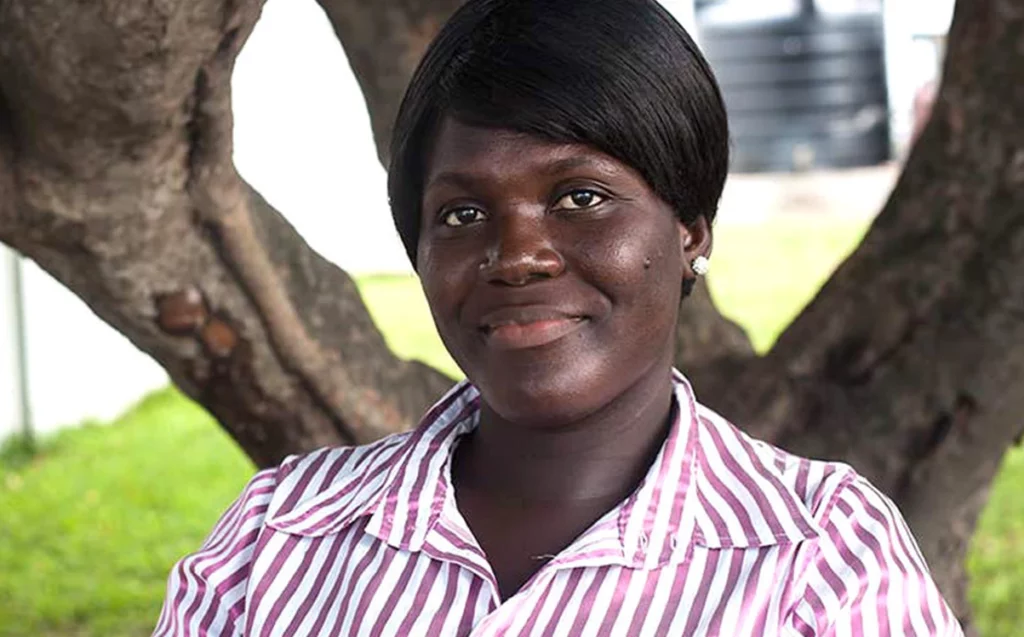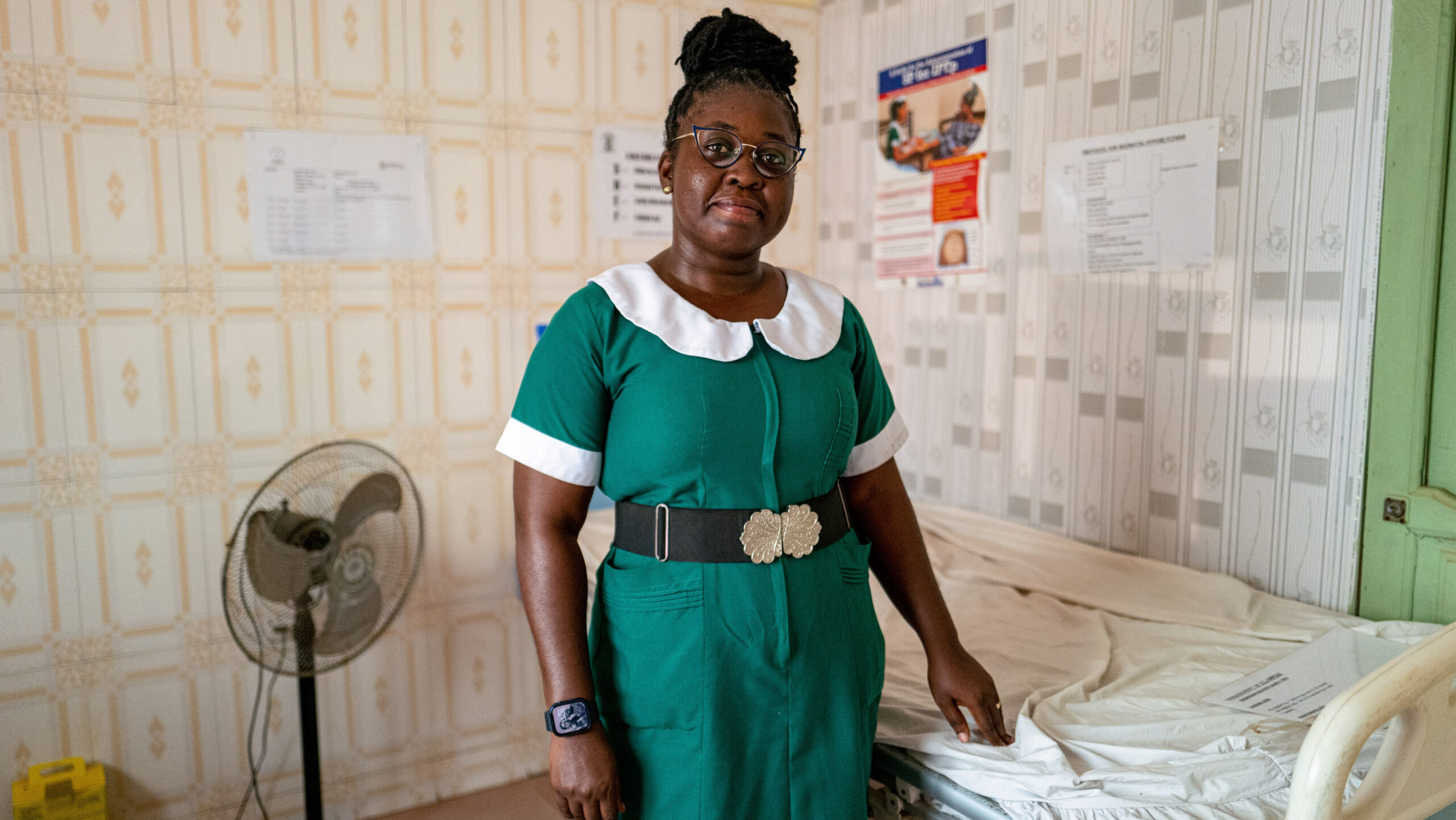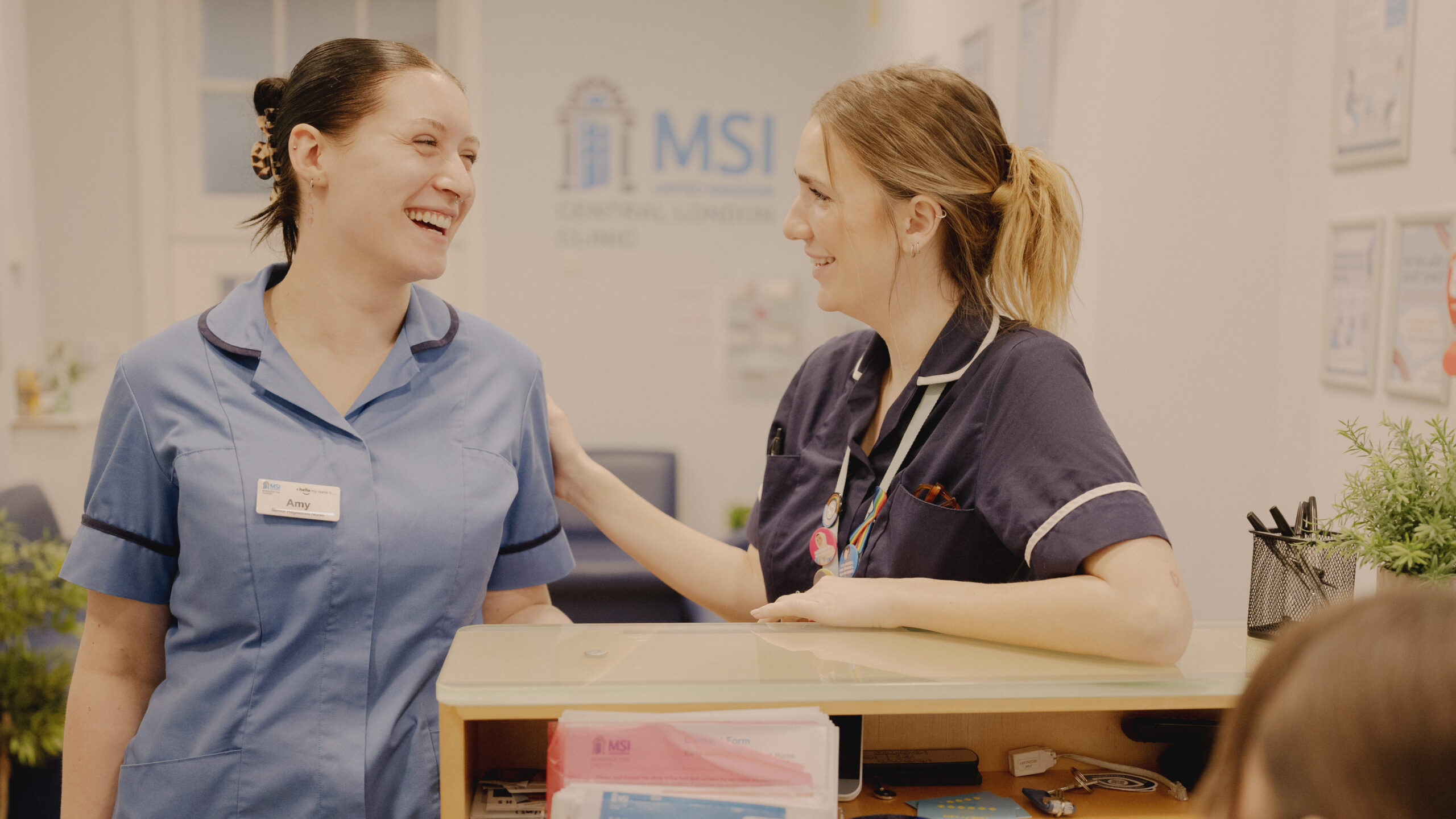“Without MSI I don’t know where I would be, maybe I’d be dead.”
Dina Appiah is 27 years old and works as a security guard in the city. She lives with her parents and four children in Accra, Ghana. Sadly, like many women across the world who struggle to access reproductive choice, Dina has risked her life more than once in an effort to take control of her body.
Growing up in a community where Dina had limited sex education, misconceptions about contraception were prevalent and stories she heard about their side effects made her afraid to seek it out.
Ghana has struggled for decades with an unmet need for family planning, and despite an increase in accessible services in recent years, challenges in reaching women across the country – particularly young girls – remain.
This lack of access to reliable information and modern contraception contributed to Dina having her first pregnancy at the young age of 16.
“I was 16 years old when I first had an abortion. I was in secondary school and I could not afford to leave school for a pregnancy, so I had to abort it.”
The reality of unsafe abortion
By the time Dina was 24 years old, she had carried out a total of eight self-induced abortions using pills from the local pharmacy.
Doing all of her abortions herself and alone put her at risk of complications, yet due to the stigma and shame she felt, Dina never sought medical attention for any of her eight self-induced abortions.
“One time I felt like I was dying… I took the tablets and used the local concoction. I wanted to end the pregnancy but it wasn’t easy, my body was so weak… I lost so much blood during that particular one, I thought I would die.”
Every year, tens of thousands of women die as a result of complications related to unsafe abortions. Counterfeit drugs, quack ‘doctors’, tea-leaves, knitting needles, even small bottles filled with explosives inserted into the uterus – these are just some of the things that girls and women turn to – nearly 22 million times a year – in a desperate attempt to end their unintended pregnancies. Some – such as Dina – live to tell their stories. Many others do not.
We are committed to doing all we can to reduce the harm caused by unsafe abortion. We will do by increasing access to safe abortion services, wherever it is legal for us to do so and by giving access to contraception to prevent unintended pregnancies.
“One time I felt like I was dying… I took the tablets and used the local concoction. I wanted to end the pregnancy but it wasn’t easy, my body was so weak… I lost so much blood during that particular one, I thought I would die.”

Empowering women to plan their lives
If Dina’s misconceptions and fears about contraception had been addressed, the likelihood of her having to resort to an unsafe abortion would have been reduced.
One year after her last abortion, Dina encountered MSI Ghana. After receiving counselling from one of our team members, Dina decided to have an IUD fitted to help prevent future unintended pregnancies, and take control of her future.
“Looking at all I have been through with pregnancies in my past life, I thought that when I chose the IUD that all will be fine, and it is OK, I am fine… without MSI I don’t know where I’d be, maybe I’d be dead.”
MSI Ghana has been working tirelessly since opening in 2006 to provide high quality sexual and reproductive healthcare, including contraception and safe abortion care, to women across the country, helping to reduce the number of unintended pregnancies and unsafe abortions.
Through our healthcare services on the ground, and partnership with the government of Ghana to promote family planning, we are actively reducing the number of women who have no other choice but to resort to the same desperate measures as Dina.








